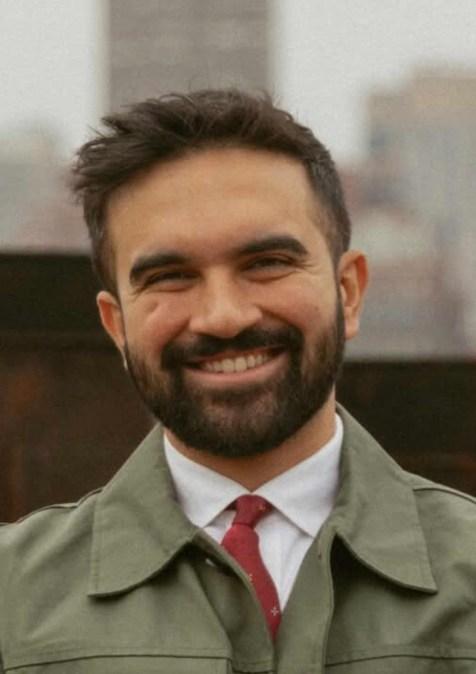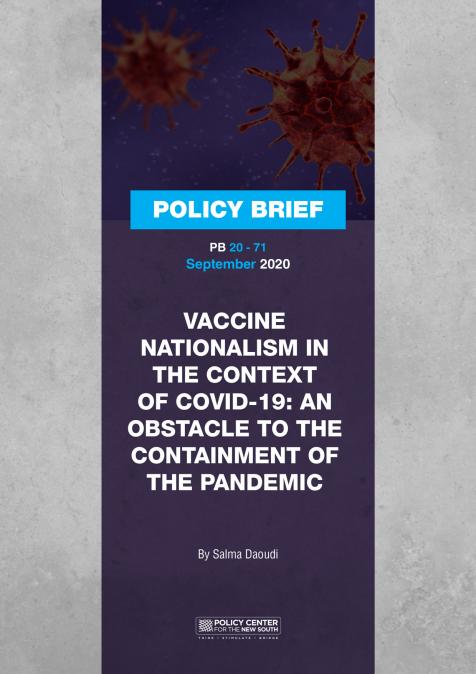Publications /
Opinion
In times of shadow and despair, populists and authoritarians move in to undermine free speech and democracy. For authoritarian-minded leaders, wrote Kenneth Roth, executive director of Human Rights Watch, writing in the New York Review of Books, “the coronavirus crisis is offering a convenient pretext to silence critics and consolidate power. Censorship in China and elsewhere has fed the pandemic, helping to turn a potentially containable threat into a global calamity. The health crisis will inevitably subside, but autocratic government’s dangerous expansion of power may be one of the pandemic’s most enduring legacies”.
Laws are rewritten, parliamentary powers curtailed, freedom of speech and the press is subjugated, and even democracies like the United States are not secure from authoritarian temptations. President Donald Trump has “a penchant for one man rule”, said Bill Moyers, an author and former adviser to U.S. President Lyndon Johnson, on CNN. The unpredictable U.S. leader is “taking the oxygen away, which America needs to breathe”. Political scientists and politicians are warning of militarization in the United States, alarmed after the Secretary of Defense declared areas surrounding the White House as “battle zones”, having been ordered by his boss, the Commander in Chief, to send units of an airborne division to battle peaceful protesters. “Critics say some governments are using the public health crisis as cover to seize new powers that have little to do with the outbreak, with few safeguards to ensure that their new authority will not be abused”, wrote Selam Gebrekidan in the New York Times. As the coronavirus pandemic “brings the world to a juddering halt and anxious citizens demand action, leaders across the globe are invoking executive powers and seizing virtually dictatorial authority with scant resistance”, she wrote. The legislation gives sweeping powers to border agents and the police, which could lead to indefinite detention. “These are the most draconian powers in peacetime Britain”, stated Silkie Carlo, director of Big Brother Watch, a London civil liberties group. “These extraordinary powers risk permanently rebalancing the relationship between citizen and the State”.
Tracking Cell Phone Data
Without doubt, some governments are breathing a sigh of relief that the coronavirus has provided a convenient reason to end political demonstrations, or to cancel elections, as in Bolivia. The Algerian government has halted regular democracy protests that have been under way for more than a year. Chile’s declaration of a ‘state of catastrophe’ and the military’s presence on the street, reported Gebrekidan in the New York Times, has “muted raging dissent that rocked the nation for months”. As Israeli Prime minister Benjamin Netanyahu faces corruption charges, noted Roth in the New York Review of Books, “his justice minister cited the coronavirus to suspend courts for most cases, as did a close parliamentary ally who attempted to prevent the opposition’s new majority from ousting him as Knesset speaker—a move that the Israeli Supreme Court said ‘undermin[ed] the foundation of the democratic process’”. Israel’s government “has cited the coronavirus to authorize its Shin Bet internal security agency to use vast amounts of location-tracking data from the cell phones of ordinary Israeli citizens”, Roth added.
“The pandemic is already redefining norms”, observed Gebrekidan in the New York Times. In Thailand, Cambodia, Venezuela, Bangladesh, and Turkey, the governments are detaining journalists, opposition activists, healthcare workers, and anyone else who dares to criticize the official response to the coronavirus. “The spread of COVID-19 has given Cuba’s State Security a pretext to escalate its attacks on its domestic critics”, according to Cuban-American writer Coco Fusco in the New York Review of Books, jailing some for not wearing face masks and threatening imprisonment of up to four years for those accused of spreading “false news or malicious predictions” on the spread of COVID-19.
Self-Serving Propaganda
When independent media is silenced, wrote Roth, “governments are able to promote self-serving propaganda rather than facts. Egypt’s President Abdel Fattah el-Sisi downplayed the coronavirus threat for weeks, apparently wanting to avoid harming Egypt’s tourist industry. His government expelled a Guardian correspondent and ‘warned’ a New York Times journalist after their articles questioned government figures on the number of coronavirus cases”. Hungary had by June 11 reported 4038 infections and 553 deaths. Roth wrote that “Prime Minister Victor Orban used his parliamentary majority to secure an indefinite state of emergency that enables him to rule by decree and imprison for up to five years any journalist who disseminates news that is deemed ‘false’” by authorities. Orban also has the sole power to decide when to end the emergency, writes the New York Times. It is a concentration of power never seen in the hands of one leader within the European Union. Other EU leaders are exasperated by the authoritarian maneuvers, but paralyzed by COVID-19 in their response to the Hungarian autocrat.
In India, the pandemic has been a bounty for the ruling BJP party and prime minister Narendra Modi, according to Jeet Thayil in the New York Review of Books: “Taking advantage of the chaos the virus brought, the Indian government consolidated powers it would have been impossible to imagine even half a dozen years ago. It has enacted measures that played on the idea that Muslims were knowingly spreading the virus, resulting in the further persecution of India’s 200 million Muslims, as well as its Dalit minorities… It has penalized political dissent, using archaic laws against sedition to arrest its critics”. Since the arrival of the virus in India, Thayil noted “the prime minister has addressed the nation twice. On both televised occasions he asked citizens to enact an odd set of rituals at specified times of day, as a way of defeating the virus. Recommended were community activities such as the blowing of conch shells, the lighting of diyas (lamps) and the beating of thalis (platters), each of these customs and rites acting as a dog whistle to upper class Hindus intended to isolate the nation’s beleaguered minorities”. The methods worked, Thayil judged. “Soon enough, neighborhoods in Delhi posted notices saying Muslims visitors were unwelcome, vegetable vendors were asked for prove of their religious affiliation, and, elsewhere in the country, hospitals denied care to Muslim patients”.
The opinions expressed in this articles belong to the author.








